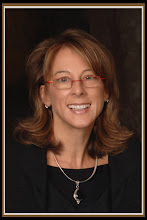Facility Factors –
First and foremost, our
Medical Outreach Director visits each facility to learn about how they operate.
We ask questions like:
·
What
technology do they have?
·
Do they
have a designated asbestos-related disease department?
·
What
about an integrated care team with nutritionists, counselors and rehabilitation
specialists?
·
What
does the facility do to set itself apart from other centers?
Once we know the
ins and outs of how each facility works with its patients, we can make
personalized recommendations that we feel comfortable standing behind.
Doctor Specialties
– Even if the facility is
nationally recognized for mesothelioma care, they may not have a doctor who
specializes in each subtype of the disease. For instance, some centers have
pleural mesothelioma specialists, but not peritoneal mesothelioma specialists.
We know how
important it is for people to work with a confident, experienced doctor. That’s why our advocates make sure to match patients with surgeons
and oncologists who know who to best treat their specific diagnosis.
Patient’s
Diagnosis – On a similar note,
we consider a wide range of variables related to the patient’s diagnosis. We
try to match patients based on the stage and location of their cancer,
the tumor cell subtype, and their overall health. Some treatment centers
specialize in early
stage mesothelioma, while others specialize in certain subtypes of the
cancer. Some patients may like to know how to improve their
prognosis after their diagnosis. Our goal is to help patients get the most
individualized care for their unique situation.
Patient’s
Preferences and Resources – We
know that the best doctor for a patient may not be in their city – or even
their state. But we also know that most patients can’t simply uproot themselves
from their families and daily responsibilities to travel across the country for
medical care. That’s why we match patients with doctors that are as close to
their geographical region as possible. We also help arrange travel services and
grants (often on a free or reduced fare) for patients who do need to commute to
their specialist.
We also understand
that patients may not wish to use conventional medicine or current practices.
That’s why we also match patients with clinical trials and offer information on
complementary
and alternative medicine (CAM).
The clinical trials provide access to innovative, not-yet-available treatments
that researchers hope will be the next big thing in mesothelioma treatment. And
CAM therapies can offer relief for patients whether they elect traditional
treatment or take an all-natural approach. Each patient has their own path, and
we do our best to support them along the way.
Author bio: Faith Franz has spent two years researching
and writing for The Mesothelioma Center. As an advocate for alternative
medicine, she encourages patients to explore all of the treatment options that
could potentially save their life.
Elyn
~~If you don’t know your options, you don’t have any~~
Elyn Jacobs is a breast cancer survivor, professional cancer coach,
radio talk show host, speaker, and the Executive Director for the Emerald Heart
Cancer Foundation. She is also on the peer review board of the Natural Standard
Database. Elyn empowers women to choose the path for treatment that best fits
their own individual needs. She mentors women who are coping with issues of
well-being associated with breast cancer and its aftermath; she is passionate
about helping others move forward into a life of health and wellbeing. Elyn has
been featured on CNN Money, Talk About Health and more and has contributed to
Breast Cancer Answers as well as written for the Pink Paper, Breast Cancer
Wellness, Natural Healing-Natural Wellness, Integrative Oncology Essentials,
and other publications and newsletters. Elyn lives in New York with her husband
and two young boys.
Follow Elyn on Linkedin
Follow Elyn on Facebook
Follow Survive
and Live Well on Twitter
Donate to the Emerald Heart Cancer
Foundation
















